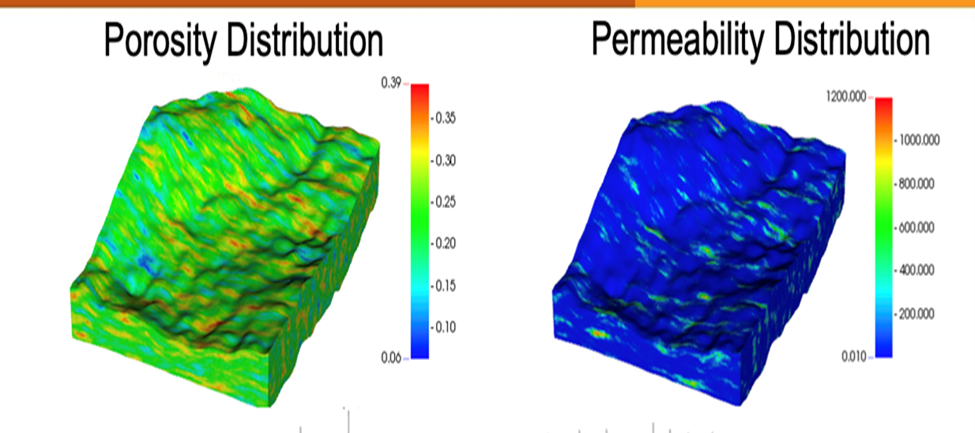Research
Research
Featured Research Topics

Hydrogen may become an important fuel as we transition to low-carbon energy sources. Its combustion produces no CO2, but only water vapor and minor amounts of nitrogen oxides. Hydrogen can be produced from methane through oxidation (blue hydrogen), which produces as a final byproduct CO2, which can be sequestered underground; or by splitting water molecules (green hydrogen), which can be powered entirely by renewable energy. It is thus viewed as a low-carbon alternative for vehicle fuel and electricity generation.
Carbon Capture and Storage (CCS) is a proposed method to reduce anthropogenic carbon dioxide in the atmosphere by capturing CO2 emissions (e.g. from power plants) and storing CO2 in a supercritical state in subsurface geological formations such as deep saline aquifers or depleted hydrocarbon reservoirs.


